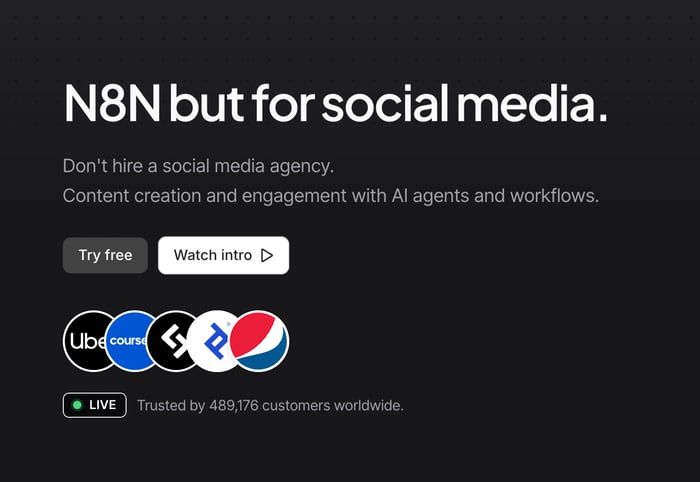Top AI Tools Every Ecommerce Store Should Use
Table of Contents
- Best AI Tools for Ecoomerce
- Modelia – AI Fashion Models for Ecommerce Brands
- ChatGPT – AI Copywriting and Customer Support
- Jasper – AI Marketing Assistant
- Klaviyo – Smart AI-Powered Email Marketing
- Shopify Magic – Native AI Features for Store Owners
- Pimeyes – Visual Search and Recognition
- Ocoya – AI for Social Media Content
- LivePerson – Conversational AI for Ecommerce
- Levity – AI Workflow Automation
- How Modelia Fits Into Modern Ecommerce
- Final Thoughts
Running an online store today means combining dozens of tasks, from managing inventory to designing visuals and optimizing customer experiences. That’s where this top of the best AI tools for ecommerce come in. They automate repetitive work, provide smart insights and help you scale faster without burning out your team.
The rise of AI ecommerce solutions has transformed how brands market, sell and serve customers. Whether you run a small Shopify boutique or a large online marketplace, using the best AI tools for ecommerce can help you drive more sales, cut costs and create personalized shopping experiences.
Let’s explore the top ecommerce AI software that’s reshaping online retail in 2025.
Best AI Tools for Ecoomerce
Modelia – AI Fashion Models for Ecommerce Brands
For fashion and apparel sellers, visual content makes or breaks a store’s success. That’s why Modelia stands out as one of the best AI tools for ecommerce when it comes to visual automation. With Modelia you can create amazing visuals that recall luxury and high fashion without going into a studio, just by uploading a single product photo.You can display your clothing on diverse virtual models, change backgrounds, or adjust lighting all within minutes.
This tool is especially powerful for stores on platforms like Shopify, where visual consistency can boost conversion rates. Modelia’s ecommerce AI software is not just about beauty, it’s about performance and also, brands using Modelia can reduce production time, cut costs, and keep up with fast-changing fashion trends effortlessly. Here you have an example of what Modelia can do with a bag photo, amazing right?

ChatGPT – AI Copywriting and Customer Support
When it comes to creating product descriptions, blog posts, or email campaigns, ChatGPT is a must-have AI ecommerce solution. It helps you write engaging, SEO-optimized content that converts visitors into buyers.
But beyond content, ChatGPT can also automate customer service. With integrations on platforms like Shopify, it can power chatbots that answer FAQs, handle returns and recommend products, making it one of the most versatile ecommerce automation tools available. It is the best tool for writing content and SEO.
Jasper – AI Marketing Assistant
If you run campaigns across social media, email, and ads, Jasper is an excellent AI ecommerce software for streamlining your marketing process.
It helps you generate ad copy, product descriptions, and landing page content that aligns with your brand’s tone and voice. Jasper’s strength lies in personalization, it learns your brand style over time and adjusts suggestions accordingly.

Klaviyo – Smart AI-Powered Email Marketing
Personalized email marketing is one of the most profitable ecommerce strategies, and Klaviyo takes it to the next level.
Using AI, it segments your audience based on behavior, like browsing history or abandoned carts, and sends tailored messages that drive engagement and repeat purchases. Its predictive analytics also help you understand when customers are most likely to buy again.
Best for: Automated email campaigns and customer retention.
Shopify Magic – Native AI Features for Store Owners
If your store runs on Shopify, you already have access to powerful AI capabilities built into the platform. Shopify Magic uses AI to write product descriptions, analyze customer trends, and provide personalized marketing recommendations.
It’s one of the easiest AI ecommerce solutions to use, as it’s directly integrated into your Shopify admin dashboard. You can start optimizing your store instantly without extra setup.

Pimeyes – Visual Search and Recognition
For online fashion and accessories stores, Pimeyes offers a visual search engine powered by AI. It helps customers find similar-looking products based on images.
This kind of AI ecommerce software improves product discoverability and enhances user experience by letting shoppers upload or click an image to find matching items.
Best for: Ecommerce platforms with large product catalogs and fashion marketplaces.
Ocoya – AI for Social Media Content
Managing social media for ecommerce can be overwhelming, especially when you post across multiple platforms. Ocoya simplifies this by combining scheduling, analytics, and AI-powered content creation.
You can write captions, generate hashtags, and even create visuals automatically. Its integration with Shopify allows you to share products directly on social media, turning engagement into sales.
Best for: Ecommerce brands focused on social media marketing.

LivePerson – Conversational AI for Ecommerce
LivePerson is one of the leading AI ecommerce solutions for customer communication. It allows brands to offer real-time support through chat, SMS, and social media — powered by natural language AI.
Customers get instant answers, while your support team saves hours of manual work. It’s a perfect example of how ecommerce automation tools improve satisfaction while reducing workload.
Best for: Ecommerce stores with high customer service volume.
Levity – AI Workflow Automation
Levity helps automate repetitive tasks like tagging product photos, processing returns, or analyzing customer feedback.
This no-code ecommerce automation tool connects with your existing software and lets you design AI workflows visually. The result? Faster operations and fewer manual errors.
Best for: Teams managing logistics, customer support, or product data at scale.
How Modelia Fits Into Modern Ecommerce
Among all these AI tools for ecommerce, Modelia brings something unique: visual intelligence for fashion and retail. While most tools focus on text, analytics, or automation, Modelia transforms how brands present products visually.
With its AI model generation technology, brands can:
Showcase collections on diverse body types and ethnicities
Recolor clothing to match seasonal trends
Generate photo-realistic marketing content in seconds
Modelia helps ecommerce stores create visuals that sell, faster, smarter, and more affordably than traditional photoshoots. For any brand investing in visual storytelling, it’s one of the best AI tools for ecommerce in 2025.

Final Thoughts
Choosing the best AI tools for ecommerce depends on your goals. Some businesses need help with marketing or customer service, while others focus on automation or visuals. But what’s clear is that ecommerce AI software is no longer optional, it’s essential.
From Shopify plugins like Rebuy to AI ecommerce solutions like Modelia, these tools streamline workflows, improve conversions, and free up time to focus on strategy and creativity.
As technology evolves, the next generation of ecommerce automation tools will continue to transform how brands operate. Those who adapt early will enjoy faster growth, stronger customer loyalty, and a smarter, more connected business. Visit Modelia and start enhancing your ecommerce
FAQs: Best AI Tools for Ecommerce
1. What are the best AI tools for ecommerce in 2025?
Some of the top options include Modelia for visuals, Klaviyo for email automation, Rebuy for recommendations, and ChatGPT for content and customer support.
2. How do ecommerce AI software tools improve sales?
They personalize shopping experiences, automate marketing, and analyze customer data to recommend the right products at the right time.
3. Are AI ecommerce solutions expensive?
Many offer scalable pricing models, so even small stores can access advanced features without high costs.
4. Can AI tools replace human creativity in ecommerce?
No — AI enhances creativity by handling repetitive tasks, giving teams more time for strategy and design.
5. How does Modelia help ecommerce brands?
Modelia uses AI to generate high-quality product visuals, saving time and money while improving brand presentation and conversion rates.
How would you rate this article:
Related Articles
- How AI Transforms the Modern Design Process
- Influencer Marketing for Fashion Brands: Boosting Visibility Through Partnerships
- Branding for Ecommerce: Strategies for Creating an Impactful Online Presence
- The Best Autumn Outfit Ideas for This Season
- Modelia vs Fashn.ai
- Generate Catchy Captions with AI
- Hautech AI Pricing, Plans and Feature Breakdown
- Fashion Product Photography: Tips & Tools for Success
- Shopify vs PrestaShop: A Complete Comparison for Sellers
- How to Use an Outfit Visualizer for Fashion Inspiration


